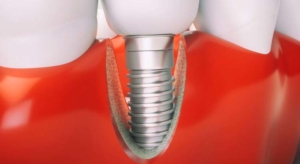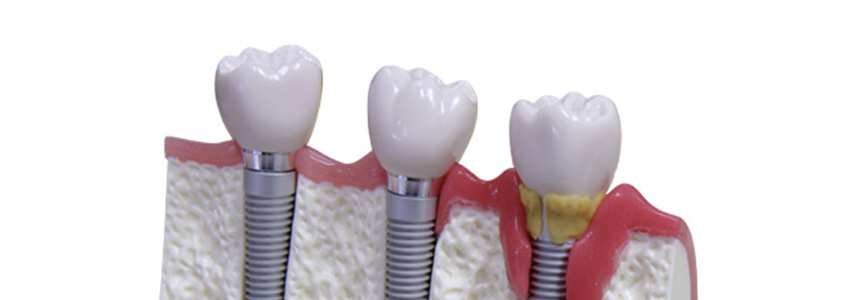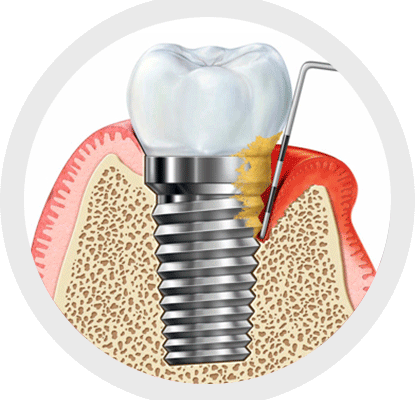The failure of implantology due to a dental implant infection is a rare occurrence event, thanks to the high success rate achieved over the years.
Dental implant infection: what risks are taken
 Contracting an infection to dental implants means putting yourself in a position to lose implants. Peri-implantitis, this is the name of the pathology, in fact affects the dental implant, compromising the bone in which the implant is inserted, this causes a failure and the loss of implant stability up to the fall.
Contracting an infection to dental implants means putting yourself in a position to lose implants. Peri-implantitis, this is the name of the pathology, in fact affects the dental implant, compromising the bone in which the implant is inserted, this causes a failure and the loss of implant stability up to the fall.
The perimplantitis it is a pathology analogous to periodontitis, in fact both are characterized by the proliferation of anaerobic Gram negative bacteria and both have as a consequence the fall of the teeth / implants.
The main risk incurred by those who have undergone implant surgery is that after following the dentist’s recommendations in the periods immediately following the insertion of the implants, they begin to neglect the care of the implant.
In fact, peri-implantitis can also occur many months after implant surgery, so constant monitoring of dental implants, with specialist visits and daily hygiene, should be a constant and not only sporadic habit.
Peri-implantitis and infection to natural teeth adjacent to the implant
The correlation between peri-implantitis and periodontitis is very narrow. In fact, during the planning phase of an implant surgery, the dentist verifies that there is no one in progresstissue infection of the periodontium; if there were this type of diagnosis, the insertion of the implants would take place only after the complete removal of the periodontitis.
Infection to natural teeth could in fact shift to the implants and cause implant failure. There is clinical evidence that patients who have contracted periodontitis throughout their lives are more likely to have peri-implantitis.
The correlation also applies to inverse conditions, in the presence of an infection in the dental implant, the adjacent natural teeth could be in danger and be attacked by bacteria.
Dental care must therefore always be aimed at monitoring an overall health condition, only a competent professional can assess the degree of risk of a specific clinical condition.
How to treat dental implant infection to safeguard natural teeth
The possibility of recovering from a peri-implantitis depends on the progression of the disease, timely intervention leads to a greater probability of success.
When the infection to dental implants is in its early stages, dental treatment involves the administration of antibiotic drugs and local applications of antiseptics. A drug treatment can also be associated with a laser treatment to eliminate bacteria.
If, on the other hand, the dentist finds himself in front of an advanced stage peri-implantitis, he will be forced to intervene with a surgical treatment to clean up the part of the plant attacked by the bacteria. Surgical curettage can be performed with incision and lifting of the gingival flap (open sky) or without any incision (closed sky).
Take care of the dental implant after implantology it remains the most effective solution to avoid any kind of inconvenience.

















